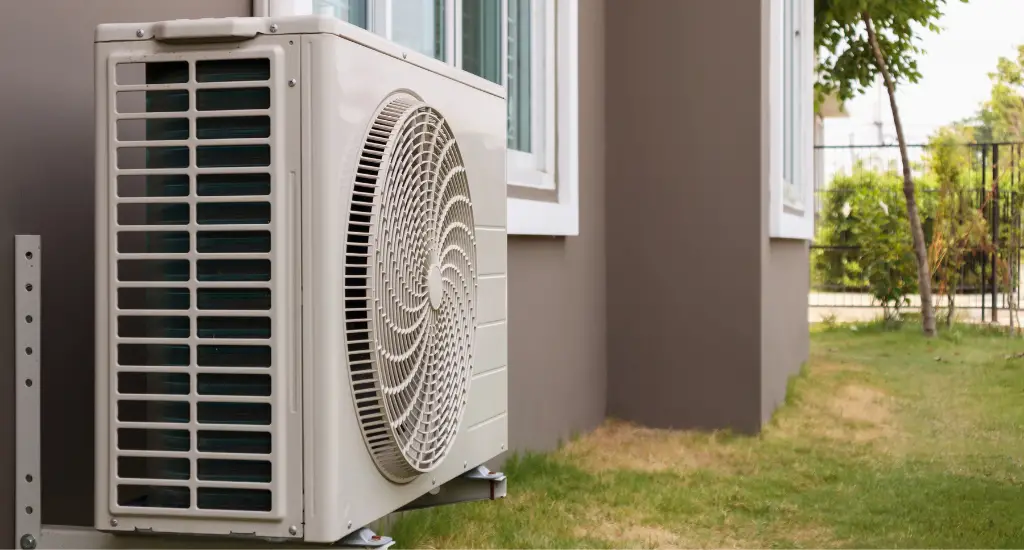As a homeowner, maintaining your HVAC system is crucial for ensuring comfort and efficiency in your living space. One of the most important components of this system is the evaporator coil. However, evaporator coils can develop leaks over time, leading to reduced performance and increased energy costs. This comprehensive guide will walk you through everything you need to know about evaporator coil leak repair, helping you maintain an efficient and effective HVAC system.
Evaporator Coils
What is an Evaporator Coil?
The evaporator coil is a key component of your HVAC system, responsible for absorbing heat from the air inside your home. It works in conjunction with the condenser coil to cool your home by converting the refrigerant from a liquid to a gas, which absorbs heat in the process.
The evaporator coil plays a vital role in the refrigeration cycle. As warm air from your home passes over the coil, the refrigerant inside the coil absorbs the heat and cools the air. This cooled air is then circulated back into your home, providing a comfortable indoor environment.
Types of Evaporator Coils
There are several types of evaporator coils, including:
| A-Coil | Shaped like the letter “A,” these coils are commonly used in vertical HVAC systems. |
| N-Coil | Named for their N-shaped design, these coils are efficient and compact. |
| Slab Coil | These flat coils are often used in horizontal installations. |
Understanding the type of evaporator coil in your system can help you better identify and address any issues.
Identifying Evaporator Coil Leaks
Signs and Symptoms of a Leak
Detecting an evaporator coil leak early can prevent more significant issues. Look out for the following signs:
| Reduced Cooling Efficiency | If your AC is not cooling your home as effectively as it used to, it could be due to a leak. |
| Unusual Noises | Hissing or bubbling sounds can indicate a refrigerant leak. |
| Increased Energy Bills | A leaking evaporator coil can cause your system to work harder, leading to higher energy consumption. |
| Ice Buildup on the Coils | Ice on your evaporator coil is a common sign of a refrigerant leak. |
Tools and Techniques for Detecting Leaks
To accurately identify a leak, you can use the following tools and techniques:
| Electronic Leak Detectors | These devices can sense refrigerant leaks by detecting halogenated gases. |
| UV Dye Detection | Injecting a UV dye into the refrigerant system can help you locate leaks when illuminated with a UV light. |
| Soap Bubble Solution | Applying a soap solution to suspected leak areas can reveal bubbles if a leak is present. |
Causes of Evaporator Coil Leaks
Understanding the causes of evaporator coil leaks can help you take preventive measures.
Corrosion from Formic Acid and Formaldehyde
Formic acid and formaldehyde, often found in household products and building materials, can corrode the copper tubes in evaporator coils, leading to leaks.
Physical Damage or Wear and Tear
Over time, the constant expansion and contraction of the evaporator coil can cause physical damage or wear, resulting in leaks.
Improper Installation or Maintenance
If the evaporator coil is not installed or maintained correctly, it can lead to premature failures and leaks.
Chemical Reactions with Contaminants in the Refrigerant
Contaminants in the refrigerant can cause chemical reactions that deteriorate the evaporator coil, leading to leaks.
Assessing the Severity of the Leak
Before deciding on a repair, it’s important to assess the severity of the evaporator coil leak.
Minor vs. Major Leaks
Minor leaks can often be repaired, while major leaks may require coil replacement. Determining the extent of the damage is crucial.
When to Repair vs. Replace the Evaporator Coil
If the leak is minor and the coil is relatively new, a repair might be sufficient. However, if the coil is old or severely damaged, replacement might be the best option.
Consulting with a Professional HVAC Technician
A professional HVAC technician can provide a thorough assessment and recommend the best course of action based on the severity of the leak.
DIY Evaporator Coil Leak Repair
For those who prefer a hands-on approach, DIY repairs can be a viable option for minor leaks.
Safety Precautions and Necessary Tools
Before attempting a repair, ensure you have the following tools and safety gear:
- Safety goggles and gloves
- Refrigerant recovery machine
- Leak detection tools
- Coil repair kit
Step-by-Step Guide to Temporary Repairs
1. Using Epoxy or Sealant
- Turn off the HVAC system – Ensure the system is powered off to avoid accidents.
- Locate the leak – Use leak detection tools to identify the exact location of the leak.
- Clean the area – Remove any dirt or debris around the leak.
- Apply epoxy or sealant – Follow the manufacturer’s instructions to apply the sealant over the leak.
- Allow to dry: Give the sealant time to cure before restarting the system.
2. Applying a Coil Repair Kit
- Turn off the HVAC system – Ensure the system is powered off.
- Identify the leak – Use leak detection methods to locate the leak.
- Prepare the repair kit – Follow the instructions provided with the kit.
- Apply the repair solution – Use the repair solution to seal the leak.
- Wait for the repair to set – Allow the repair solution to cure before turning the system back on.
Pros and Cons of DIY Repairs
Pros:
- Cost-effective for minor leaks
- Immediate solution without waiting for a technician
Cons:
- Temporary fix; professional repair might still be needed
- Risk of improper repair leading to further damage
Professional Evaporator Coil Leak Repair
Finding a Reputable HVAC Technician
For major leaks or those who prefer professional assistance, hiring an HVAC technician is recommended. Look for technicians with certification, licenses, positive reviews, recommendations, and experience with evaporator coil leak repair.
The Repair Process Explained
A professional repair process involves an initial inspection, leak detection and diagnosis, and repair or replacement of the coil. The technician will inspect the system to assess the leak and overall condition of the evaporator coil. Using specialized tools, the technician will locate the leak and determine the best repair approach. Depending on the severity, the technician will either repair the leak using appropriate methods or replace the evaporator coil if necessary.
Costs Involved in Professional Repair
Professional repairs can vary in cost based on the extent of the leak and the need for replacement parts. Generally, repair costs range from $300 to $1500.
Warranties and Guarantees
Reputable HVAC companies often provide warranties on their work, giving you peace of mind and assurance of quality.
Why ONC Air is the Best Professional AC Repair Expert
When it comes to evaporator coil leak repair and air conditioning repair, ONC Air stands out as the top choice for homeowners in Pembroke Pines, Davie, Boca Raton, and other cities in South Florida.
Here’s why:
| Experience and Expertise | ONC Air has a team of certified and licensed technicians with extensive experience in evaporator coil leak repair and AC repair. They are well-equipped to handle a variety of HVAC issues. |
| Positive Reviews and Recommendations | Homeowners across South Florida highly recommend ONC Air for their prompt, professional, and reliable service. Their positive reviews attest to their commitment to customer satisfaction. |
| Comprehensive Services | ONC Air offers a wide range of HVAC services, from routine maintenance to complex repairs, ensuring that all your heating and cooling needs are met. |
| Quality Workmanship | ONC Air guarantees top-notch workmanship with every job. They use high-quality materials and the latest technology to ensure lasting repairs and efficient system performance. |
| Customer-Centric Approach | ONC Air prioritizes customer service, providing clear communication, timely service, and fair pricing. They strive to make the repair process as smooth and stress-free as possible. |
If you need professional evaporator coil leak repair or AC repair weston, AC repair Hollywood or AC repair in any other city of South Florida, ONC Air is the trusted choice.
Preventing Future Evaporator Coil Leaks
Regular Maintenance and Inspections
Prevention is key to avoiding costly repairs and maintaining your HVAC system’s efficiency. Schedule annual maintenance checks with a professional technician to catch potential issues early.
Ensuring Proper Installation
Ensure your HVAC system is installed correctly by qualified professionals to prevent future problems.
Using High-Quality Air Filters and Refrigerants
High-quality filters and refrigerants can reduce contaminants that cause corrosion and leaks.
Installing an Air Purifier or Dehumidifier to Reduce Contaminants
Air purifiers and dehumidifiers can help reduce airborne contaminants that contribute to coil corrosion.
Frequently Asked Questions
How Long Does an Evaporator Coil Last?
Evaporator coils typically last 10-15 years with proper maintenance.
Can I Use a Stop Leak Product for My Evaporator Coil?
While stop leak products can provide a temporary fix, they are not a long-term solution and may not work for severe leaks.
How Often Should I Schedule HVAC Maintenance?
Annual maintenance is recommended to ensure your system is running efficiently and to catch potential issues early.
What Are the Signs That My Evaporator Coil Needs Replacing?
Signs include frequent leaks, poor cooling performance, and increased energy bills. A professional assessment can confirm the need for replacement.
Keep Your HVAC System Running Smoothly

Addressing evaporator coil leaks promptly is essential for maintaining the efficiency and longevity of your HVAC system. Whether you choose to perform a DIY repair or hire a professional, understanding the causes, symptoms, and repair options can help you make informed decisions. Regular maintenance and preventive measures can further protect your system from future leaks.
By following this guide, homeowners can take proactive steps in evaporator coil leak repair, ensuring their HVAC systems remain efficient and effective for years to come.



